Transport Canada has issued the federal ELD law, which will be fully enforced starting January 1, 2023. It will require commercial motor vehicle (CMV) operators to use electronic logging devices instead of paper logs to record their driving hours.
Elogs record driver activity and vehicle information during a trucker’s hours of service (HOS) over the course of a commercial trip. This recording of driver activity is each driver’s responsibility. Before electronic logbooks were implemented, drivers used paper logs.
In addition to requiring CMV drivers to record their HOS electronically, the law also requires elogs to meet specific technical standards and be certified by a Transport Canada-approved certification body.
Who Must Comply with the Canadian ELD Law?
A truck driver who is required to maintain HOS records must comply with the new ELD laws and regulations. However, there are limited exemptions. Electronic logs are nor required to record RODS in the following cases:
- If a territorial or provincial director issues a special permit for a vehicle.
- If a carrier is granted a statutory exemption.
- If the vehicle has been rented for up to 30 days (without extensions).
- If the vehicle was manufactured before the year 2000.
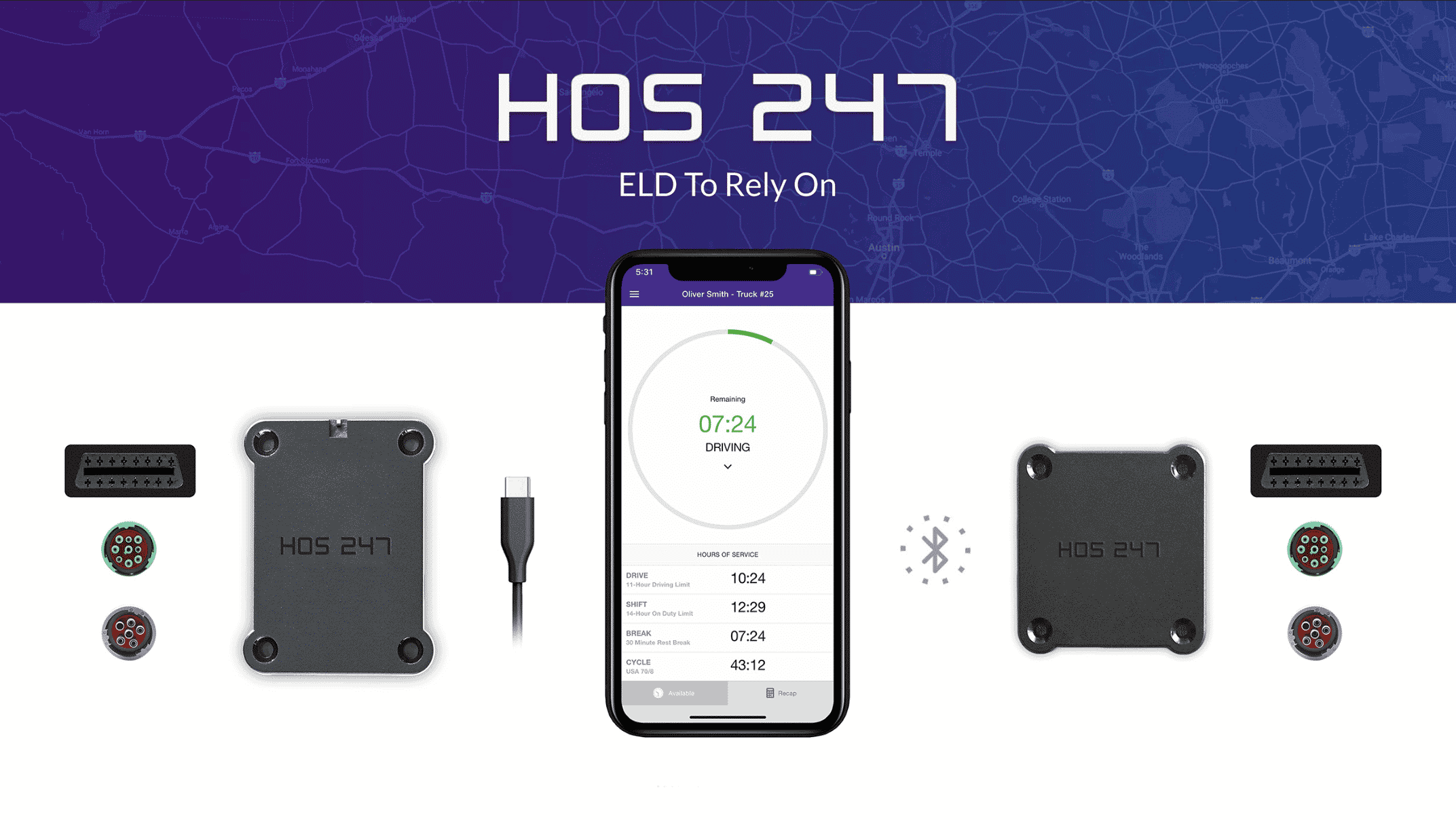
How to Choose a Compliant Electronic Log
When choosing an electronic log, it is important to make sure it has all the features required by the elog mandate. The first step is to purchase a certified device. Transport Canada has approved three third-party certification bodies. Their task is to evaluate the devices submitted by electronic logbook manufacturers. The hardware and software are tested and, if they comply with the standard, the device can be certified.
Motor carriers must check that their provider is certified by January 1, 2023 to avoid penalties. Until then, the focus will remain on education and awareness. Once full compliance is instituted, the mandate will be enforced by provincial and territorial authorities.
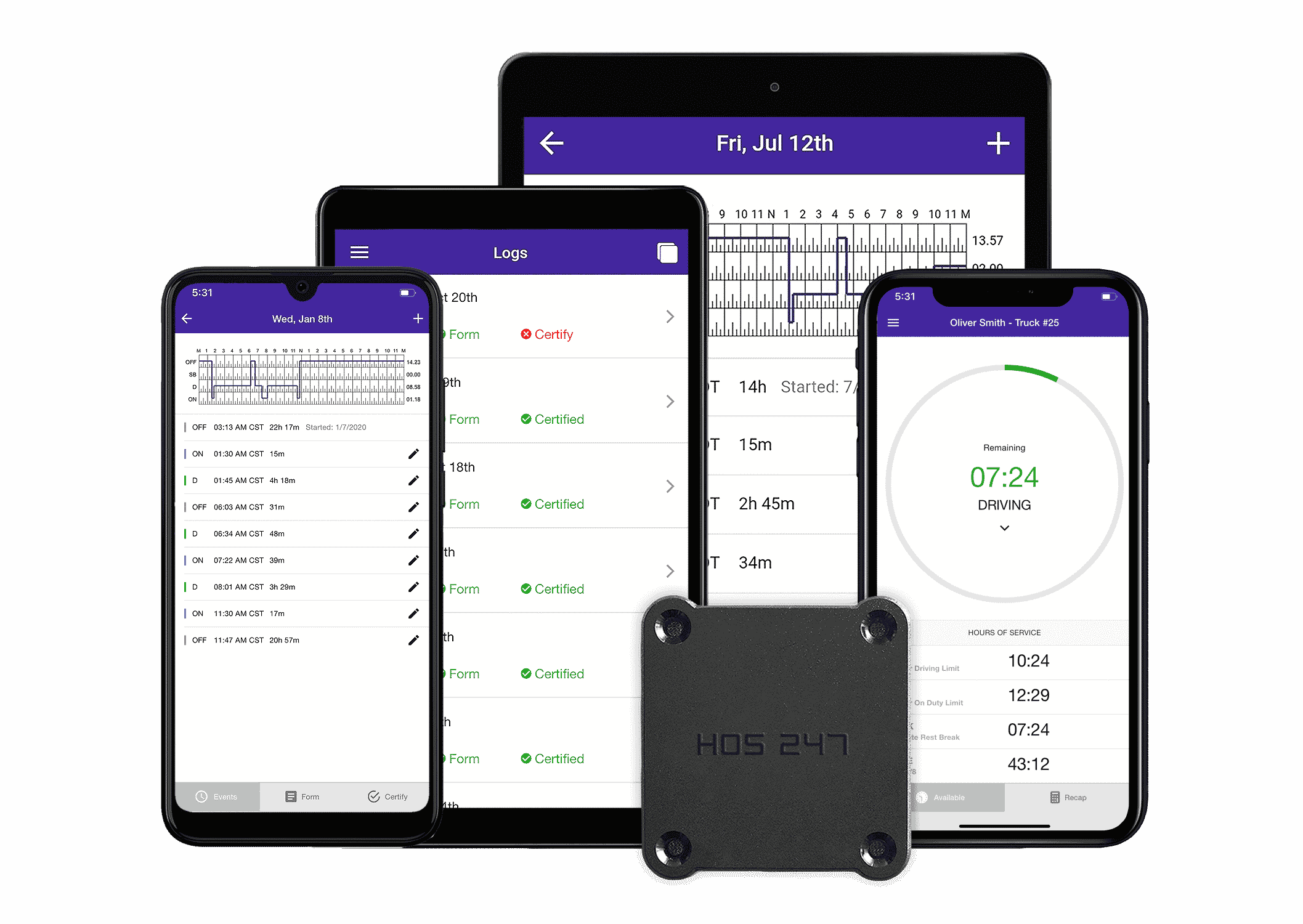
Additional Features to Consider for Efficient Fleet Operations
An electronic logging device with the basic features might be compliant, but that doesn’t mean it is worth the investment. Fleets can benefit from additional features that simplify tasks and improve efficiency, including:
- Advanced GPS fleet tracking. 4G/LTE fleet tracking technology gives real-time insight as to the location of every vehicle. This helps reduce the number of phone calls that dispatchers must make to determine whether a driver will be available for a new assignment. It also stores data so fleet managers can look at past trips and analyze routes.
- IFTA mileage automation. With this feature, carriers can reduce workload and minimize human error since mileage calculations by jurisdiction are automated.
- Dispatch automation. Modern dispatch automation technologies allow fleet dispatchers to assign new loads within seconds as it gives them a birds’ eye view of where the nearest drivers are, whether there are any traffic issues, and more. This allows fleet managers to communicate arrival times more accurately, leading to a better customer experience.
HOS247 Is a Leading Enterprise in Providing ELDs
HOS247 knows the ins and outs of the elog mandate, allowing carriers to focus on earning profits instead of worrying about whether their electronic logbook is compliant. With our expertise, we’ve been able to help trucking businesses carry out successful operations for several years.
Here’s why carriers choose HOS247 over the competition:
- High user ratings. Drivers appreciate the ease of use and the way our elogs make keeping RODS simple. When drivers like the solution, fleet managers’ jobs are also optimized.
- Reliable hardware. Training drivers to use a new system and then having to replace it because it turned out to be unreliable is a wasted investment (both in money and time). HOS247 hardware is hassle-free, easy to install, and highly reliable.
- No hidden costs. Unlike some providers that charge hidden fees after locking customers into contracts, HOS247 provides all costs for hardware and service upfront for accurate budgeting.
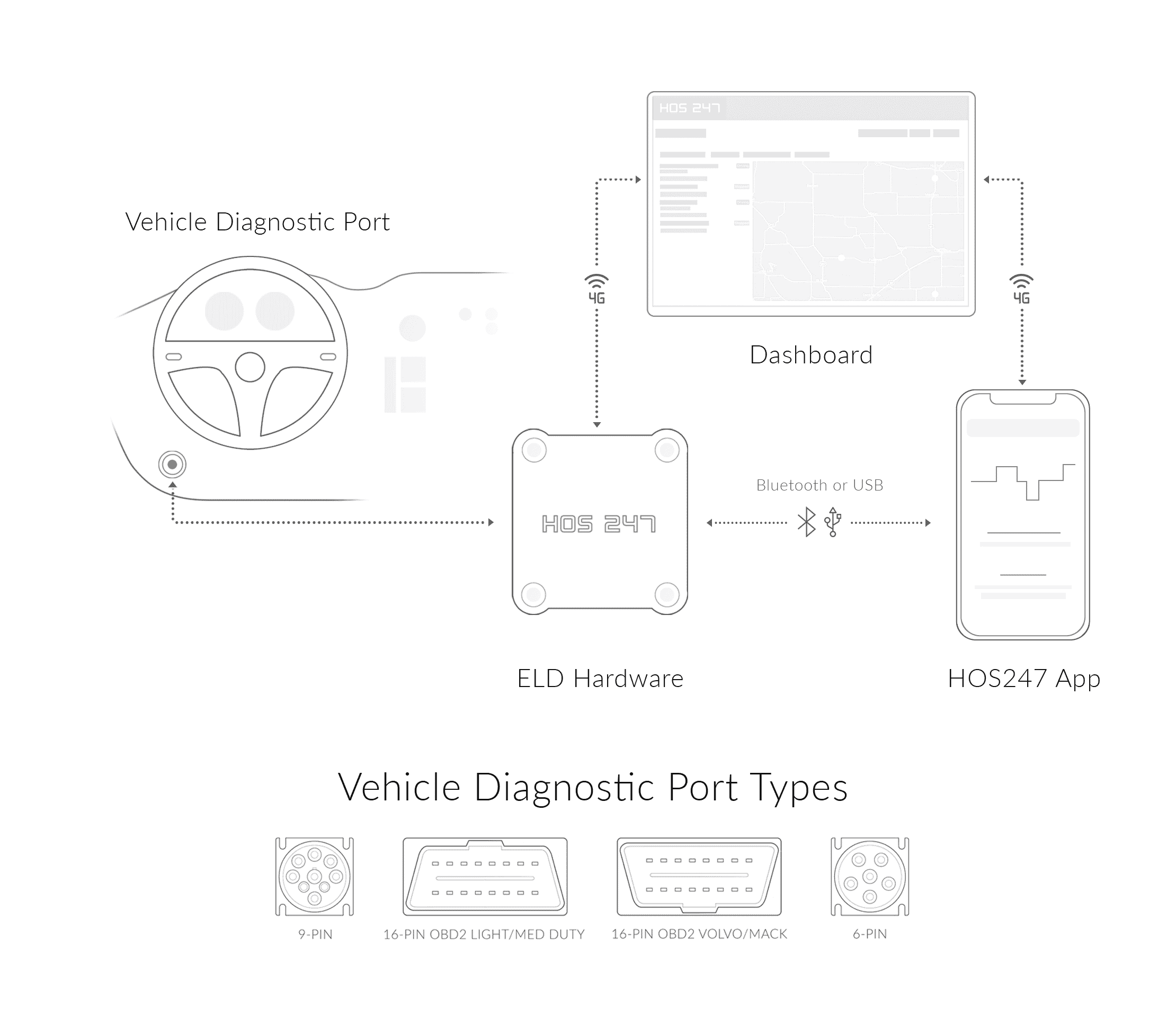
- High-end customer support. Drivers and carriers can easily access customer support seven days a week to help with the onboarding process and answer any questions you may have. Our knowledgeable customer support representatives speak English, Spanish, Russian, and Polish.
- No long-term contracts. Trucking businesses don’t need to commit to any long-term contracts. HOS247 also offers flexible payment options.
- Two-week trial. Carriers can test out HOS247 ELDs for two weeks. If they determine it’s not right for them, they can return it within that period hassle-free.
- Compatible with all devices. The logbook app is compatible with Android and iOS smartphones and tablets, which is great for drivers who prefer to use their own devices.
- Flexible plans. Our customers benefit from choosing the plan that best fits their fleet’s needs. Small fleets appreciate this type of flexibility, since they don’t have to pay for the same features needed by large fleets, such as IFTA calculations or advanced GPS tracking.
Canadian ELD Law Compliance Dates
The new ELD law has been coming for a few years now. This timeline illustrates the steps towards its implementation:
- 2016. The Government of Canada first proposes the use of electronic logbooks after a period of industry stakeholder comments.
- December 16, 2017. The proposed Regulations Amending the Commercial Vehicle Drivers Hours of Service Regulations are published in the Canada Gazette.
- June 12, 2019. The final rule is published and the implementation date set to June 12, 2021.
- May 5, 2021. The Canadian Council of Motor Transport Administrators issues a statement announcing a one-year progressive enforcement period for the new regulations, beginning on June 12, 2021.
- June 12, 2021. The ELD mandate comes into effect. However, due to progressive enforcement, no penalties are applied yet.
- March 7, 2022. The CCMTA announces a second delay on full enforcement, which was originally supposed to end on June 12, 2022..
- January 1, 2023. Full enforcement begins. All commercial motor vehicles must be equipped with certified electronic logbooks.
With full enforcement around the corner, motor carriers should consider their elog options carefully. A good idea might be to try out some electronic logging systems before the final deadline to avoid being pressed for time and stuck with an inconvenient solution. The provider of your choice must be a partner for your business and help you make the transition to elogs as easy as possible. HOS247 is experienced and offers top-rated support for trucking professionals.

I’ve co-founded, built and managed several transportation-related businesses. Now, I’m a founder and CEO of HOS247 – an AI Transportation Platform for trucking companies, freight brokers and other logistics operations. We are transitioning old-style operations to technology-advanced logistics entities and help them to grow their businesses. ELDs (electronic logging devices), fleet tracking and management 2.0 combined with AI-powered dispatch tools.









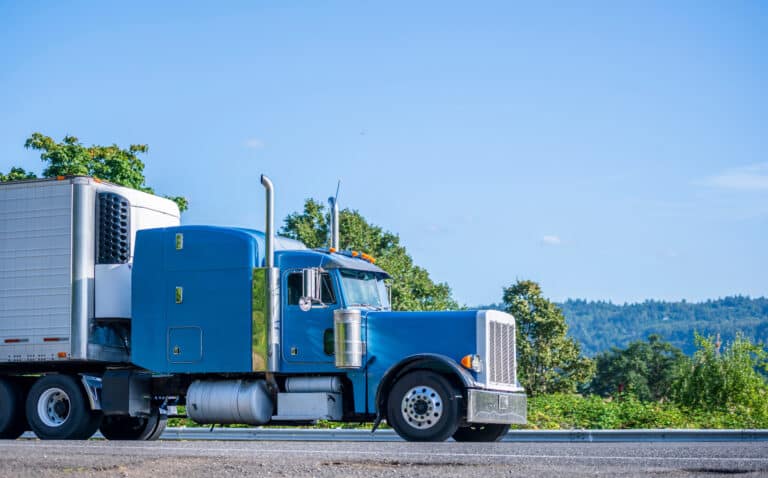
The Best Electronic Logbook App for Canada Drivers can simplify compliance, increase safety, and boost efficiency by choosing a reliable ELD. To find the best electronic logbook app for Canada, carriers should consider their trucking business’s specific needs and select
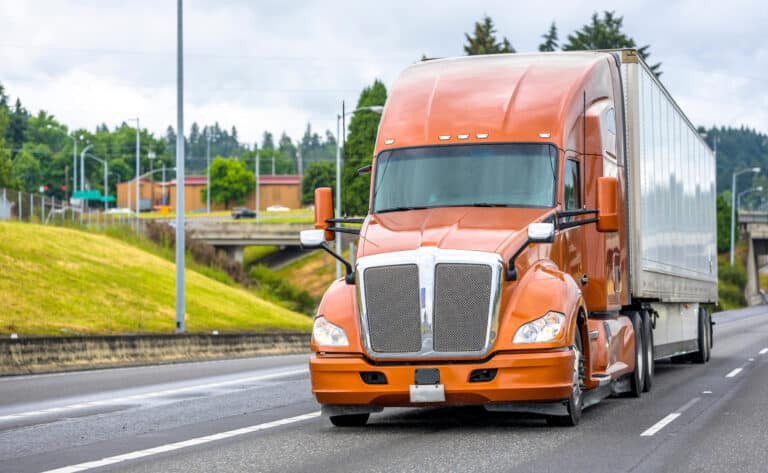
The ELD mandate will be fully enforced beginning January 1, 2023, and commercial motor vehicle drivers will be required to use electronic logs for their trucking operations. This legislation will affect around 157,500 commercial bus and truck drivers who keep

For truckers, compliance with regulations, especially Transport Canada’s, is not just a requirement, but a critical component of safe and efficient operations. Among these regulations, the implementation of electronic logging devices (ELDs) has emerged as a cornerstone, transforming the way